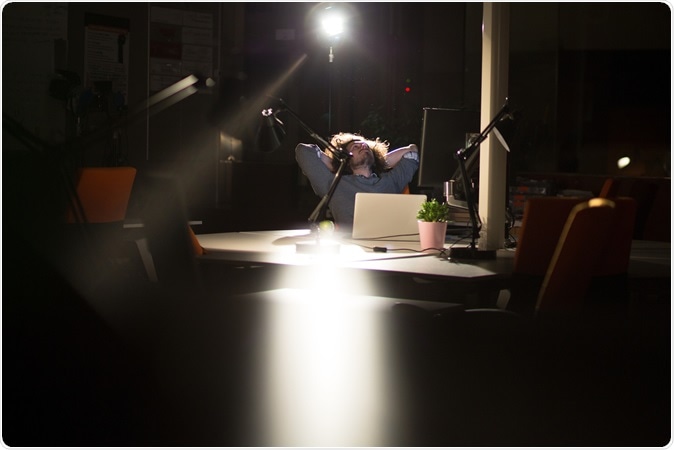New research shows that people who habitually stay up late and wake up late are at risk of shorter lives compared to those who follow the old adage – “early to bed and early to rise…” The study titled, “Associations between chronotype, morbidity and mortality in the UK Biobank cohort,” was published in the latest issue of the journal Chronobiology International.

Image Credit: Dotshock / Shutterstock
The new study, from researchers at the University of Surrey, found that Britons who are habitually late sleepers have a 10 percent higher risk of dying early. The study included 433,000 people and followed them up for up to 6.5 years. Study co-author Malcolm van Schantz says that this is an important public health issue and should not be ignored. Kristen Knutson associate professor of neurology at Northwestern University Feinberg School of Medicine, who was a co-author said that this was a “morning lark world” and “night owls” may thus suffer from ill health.
The team of researchers looked at these population aged between 38 and 73 years and gathered their data from a public database – the UK Biobank cohort. The participants called themselves one of the three types –
- Definitely a morning person (27 percent of them)
- More a morning person than evening person (35 percent)
- More an evening than a morning person (28 percent)
- Definitely an evening person (9 percent)
Other parameters and lifestyle habits were also taken into account. This included their socioeconomic status, body mass index and smoking habits. For 6.5 years the population was followed up and a total of 10500 deaths were reported during that time. Group 4 who were mainly evening persons were at a 10 percent higher risk of death compared to the group 1 who were morning people. Further psychological problems, diabetes, breathing problems and inadequate sleep was one of the major problems of the night owls. These individuals were more likely to smoke more, consume more coffee and alcohol and use illegal drugs of abuse that further raised their risk of health problems.
Knutson explained that these people have an internal biological clock that was not in sync with the external environment and this was causing the problems. She added that these problems included stress, eating unhealthy and at wrong time, inadequate exercise or sleep, drugs or alcohol abuse etc. She said people were more prone to indulging in unhealthy behaviours and habits if they were awake by themselves at night unable to sleep. Schantz said that the evening types should be advised to finish their work earlier. They should be counselled he said, to “cope with the higher effort of keeping their body clock in synchrony with sun time.”
Authors explain that some people have a natural tendency to sleep late and wake up late and 40 to 60 percent of a person’s circadian rhythm is genetically determined. They could be conditioned by being exposed to early morning light and not being exposed to lights at night. Good sleep hygiene helps in improving early sleep habits.